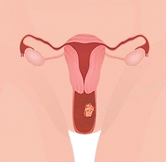Vulvar Cancer
Home > Vulvar Cancer

Vulvar cancer is a type of cancer that affects the external female genitalia, including the labia, clitoris, and vaginal opening. Although it is a rare type of cancer, it is important to be aware of the symptoms and risk factors, as early detection is key to successful treatment.
Causes:
- Age: Vulvar cancer is more common in women over the age of 50.
- HPV infection: Human papillomavirus (HPV) infection is a risk factor for vulvar cancer.
- Smoking: Women who smoke are more likely to develop vulvar cancer.
- Immune system problems: Women with weakened immune systems due to diseases like HIV or organ transplant recipients are at increased risk for vulvar cancer.
- Vulvar intraepithelial neoplasia (VIN): This is a precancerous condition that can develop into vulvar cancer.
Symptoms:
- Itching, burning, or pain in the vulva
- A lump, wart-like growth, or open sore on the vulva
- Changes in the color or texture of the vulvar skin
- Bleeding or discharge that is not related to menstruation
- Painful urination
- Painful intercourse
If you experience any of these symptoms, it is important to consult a doctor for an evaluation.
Diagnosis:
If vulvar cancer is suspected, your healthcare provider will perform a physical exam and may order further tests, such as a biopsy or imaging tests. A biopsy involves removing a small sample of tissue from the affected area and examining it under a microscope to look for cancer cells. Imaging tests, such as a CT scan or MRI, may be used to determine the extent of the cancer and whether it has spread to other parts of the body.
Treatments:
- Surgery: Surgery is the most common treatment for vulvar cancer. It involves removing the cancerous tissue and nearby lymph nodes. Depending on the extent of the cancer, the surgery may be a simple excision or a more extensive procedure, such as a vulvectomy.
- Radiation therapy: Radiation therapy involves using high-energy X-rays or other types of radiation to kill cancer cells. It may be used alone or in combination with surgery.
- Chemotherapy: Chemotherapy involves using drugs to kill cancer cells. It may be used alone or in combination with other treatments.
- Immunotherapy: Immunotherapy involves using drugs to help the body’s immune system fight cancer cells.
Prevention:
- Practicing safe sex: Using condoms during sexual intercourse can reduce the risk of sexually transmitted infections, which can increase the risk of vulvar cancer.
- HPV vaccination: The human papillomavirus (HPV) vaccine can prevent the strains of HPV that cause most cases of vulvar cancer.
- Quitting smoking: Smoking is a risk factor for vulvar cancer, so quitting smoking can reduce the risk.
- Regular pelvic exams: Regular pelvic exams can help detect vulvar cancer early, when it is most treatable.
- It’s important to consult with a healthcare professional to determine the best treatment and prevention options for vulvar cancer.
